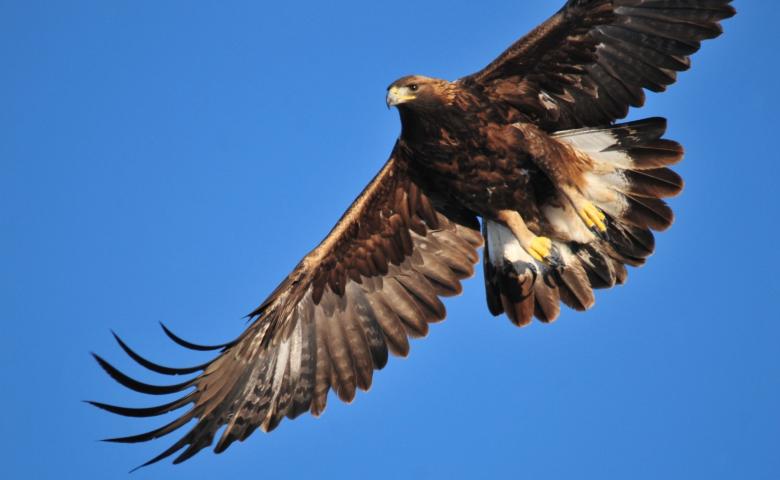Golden Eagles are known for their exceptional vision, but can they see as well at night as they do during the day? This is a question that many people have, and the answer is not as straightforward as one might think.
Can Golden Eagles See at Night?
No, Golden Eagles cannot see as well at night as they can during the day. While they have exceptional visual acuity and can spot prey from miles away, their eyes are not as well-adapted for low-light conditions as some other animals.
Anatomy of a Golden Eagle’s Eyes
Golden Eagles have a unique eye structure that gives them their impressive daytime vision. Their eyes are similar in size to human eyes, but they have a much higher concentration of rod and cone cells in their retinas. This allows them to see the world in much greater detail and magnification than humans can.
In the central fovea of a Golden Eagle’s eye, there are about a million cones per millimeter, compared to only 200,000 cones per millimeter in a human eye. This means that an eagle’s view of the world is much more detailed and precise.
Golden Eagles also have a unique feature called the pecten, which is believed to help nourish the retina, keep it healthy without blood vessels, facilitate the flow of fluids through the vitreous body at an appropriate pressure, absorb light to minimize reflections inside the eye, help perceive motion, create a protective shade from the sun, and even sense magnetic fields.
Limitations of Golden Eagle Vision at Night
While Golden Eagles have exceptional vision during the day, they are not as well-equipped to see in the dark. Their eyes have a higher percentage of cone cells than humans do, which means they are better at seeing in bright light and distinguishing colors. However, they have fewer rod cells, which are responsible for seeing in low light conditions.
This means that Golden Eagles cannot see as well as humans in the dark, even though they have a higher overall visual acuity during the day. They may struggle to spot prey or navigate in low-light conditions, and they are more likely to rely on other senses, such as their keen sense of hearing, to locate and track their prey at night.
Comparison to Other Nocturnal Birds
While Golden Eagles may not be able to see as well at night as some other birds, they are not the only birds that struggle with low-light conditions. Many other birds of prey, such as hawks and falcons, also have a harder time seeing in the dark compared to their nocturnal counterparts, such as owls.
Owls, for example, have a much higher concentration of rod cells in their eyes, which allows them to see better in low-light conditions. They also have a specialized adaptation called the fovea, which helps them focus on their prey even in the dark.
Conclusion
In conclusion, while Golden Eagles have exceptional vision during the day, they cannot see as well at night as some other animals. Their eyes are not as well-adapted for low-light conditions, and they may struggle to spot prey or navigate in the dark. However, they make up for this with their other senses, such as their keen hearing, and their impressive daytime vision.
References:
– Journey North: Eagle Vision
– Iowa DNR: Cool Things You Should Know About Golden Eagles
– All About Birds: Golden Eagle



